Request for Raise Letter Template
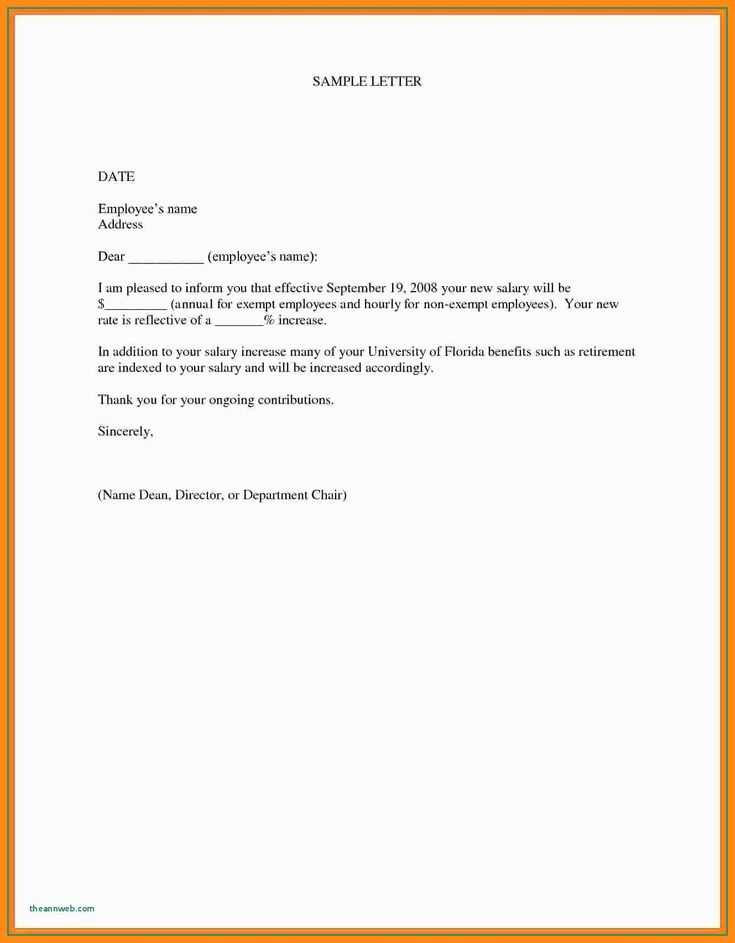
Asking for a salary increase is a significant step in your career. It requires careful preparation and a clear, convincing approach to ensure your request is well-received. Crafting the perfect message to communicate your value and justify the increase is essential in such situations.
To effectively present your case, focus on highlighting your achievements, demonstrating your contributions, and showing how your role has evolved. It’s important to remain professional and confident while expressing your expectations in a way that resonates with your employer.
In this guide, you will find useful strategies to help you structure a compelling and persuasive message. With the right approach, you can increase your chances of receiving the recognition and compensation you deserve.
Request for Raise Letter Template
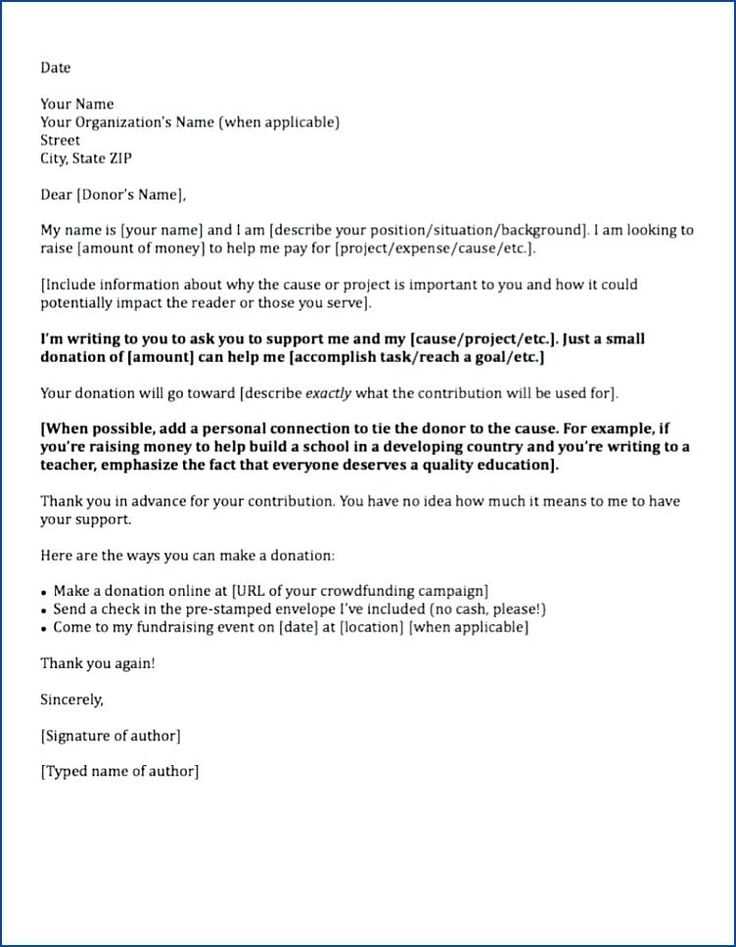
When seeking an increase in compensation, it’s important to clearly communicate your value and reasons for the adjustment. A well-crafted message can make all the difference in ensuring that your request is taken seriously. Here are some key points to consider when preparing your written appeal.
Key Elements to Include
- Introduction: Briefly explain the purpose of your communication, highlighting your role and how long you’ve been with the company.
- Accomplishments: Provide a list of your key achievements, emphasizing how your contributions have positively impacted the organization.
- Market Research: Include any relevant data about industry standards or compensation trends to back up your proposal.
- Request Details: Clearly state the desired compensation adjustment and provide a reasonable justification for it.
- Closing: Politely express your gratitude for their consideration and willingness to discuss the matter further.
Tone and Structure
Keep the tone respectful, professional, and confident. Be concise and avoid excessive detail. Your goal is to make your case without overwhelming the reader. Also, ensure that your message is easy to read and clearly organized, so your employer can easily follow your reasoning.
Crafting a Strong Salary Request
Presenting a well-prepared appeal for an increase in compensation is essential to getting a favorable response. To strengthen your position, you must clearly outline your value and achievements, while presenting a rational, professional argument. Here’s how to effectively build your case.
Start with a clear introduction: Briefly explain your current role and emphasize your contributions to the company. Acknowledge your appreciation for the opportunities provided so far, but focus on how your growth within the company warrants a discussion of your compensation.
Highlight measurable accomplishments: Provide evidence of your impact by detailing specific achievements, such as projects completed successfully, goals met, or other ways you’ve added value. Use quantifiable data where possible to demonstrate your contributions.
Support with research: Include industry or market research that justifies your desired adjustment. Compare your compensation with average salaries for similar roles in your region or field to provide a reasonable basis for your request.
Be clear and direct: State the amount or percentage increase you are seeking and explain why it is appropriate given your performance and market value. Avoid vague language and ensure your request is straightforward.
End on a positive note: Reaffirm your commitment to the company and your enthusiasm for your continued growth. Keep the tone respectful and professional to maintain a positive relationship throughout the process.
Essential Components for Your Letter
When requesting an adjustment to your compensation, certain elements must be included in your communication to ensure your appeal is strong and clear. A well-structured message will help your employer understand your reasons and see the value in your request. Below are the key components to include.
Key Elements to Consider
- Introduction: Start by introducing the purpose of your communication. Mention your current role and tenure with the company to set the context for the request.
- Professional Achievements: Highlight specific accomplishments, such as goals met, projects completed, or ways in which you’ve contributed to the company’s success.
- Skills and Responsibilities: Outline how your role has evolved over time, emphasizing any new skills or responsibilities you’ve taken on that demonstrate your growth.
- Market Comparison: Provide information about industry standards or salary trends for similar positions to support your claim and justify your request.
- Clear Request: Clearly state the compensation adjustment you are seeking, providing a reasonable justification for the amount or percentage increase.
- Professional Tone: Maintain a respectful and professional tone throughout. Show appreciation for your employer’s time and consideration, and express your willingness to discuss the matter further.
Common Mistakes to Avoid When Asking
Making a request for a compensation increase can be a delicate process, and certain missteps can reduce the effectiveness of your appeal. Avoiding common mistakes will help you present your case in the best possible way, increasing your chances of a positive outcome.
Errors That Can Hurt Your Case
- Being too vague: Failing to provide clear reasoning or specific examples of your achievements can weaken your argument. Be precise about why you deserve an adjustment and what you’ve contributed to the company.
- Timing issues: Asking at an inconvenient time, such as during company downturns or right after a major project failure, can reduce the likelihood of success. Choose a moment when your performance is particularly strong.
- Comparing with colleagues: While it’s helpful to be aware of industry standards, comparing your situation to others within your team can seem unprofessional. Focus on your own contributions rather than making it about someone else.
- Making demands: Being overly assertive or entitled can come across as aggressive. Approach the conversation respectfully and frame your request as a discussion rather than a demand.
- Neglecting to show gratitude: Not acknowledging the opportunities you’ve had or expressing appreciation for the company’s support can create a negative tone. Always show gratitude for the position and the experience you’ve gained.
Tips to Ensure Success
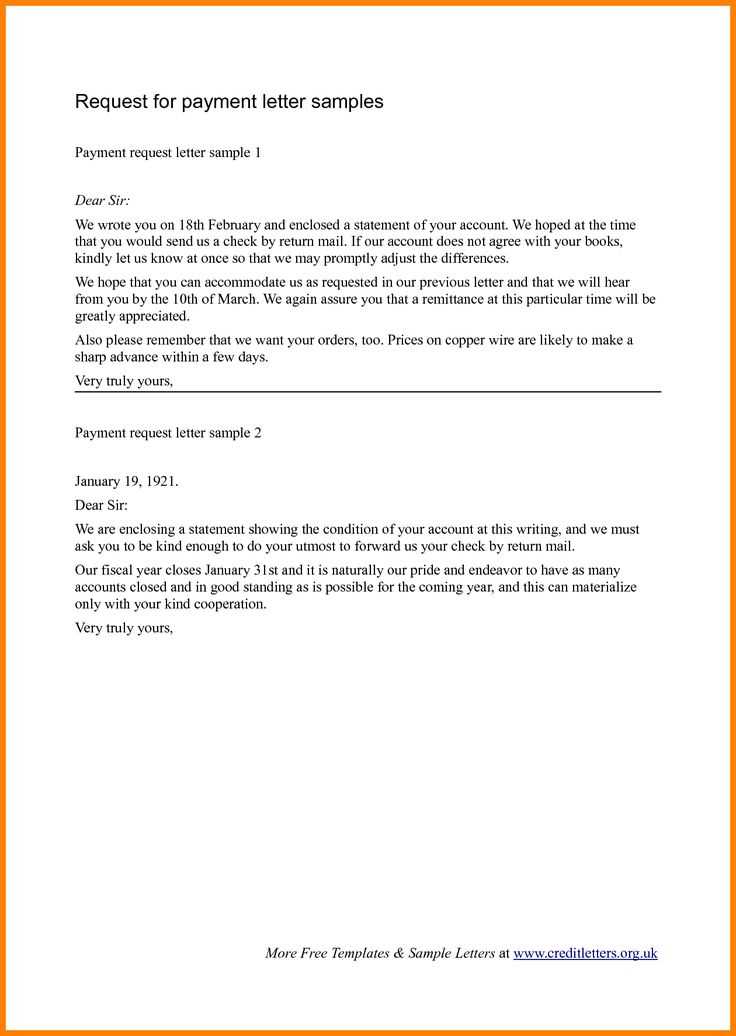
- Prepare well: Research compensation trends, document your achievements, and think about the timing before approaching your employer.
- Stay professional: Keep the tone positive and respectful, focusing on your accomplishments and growth within the company.
Personalizing Your Raise Request
When seeking an adjustment to your compensation, it is crucial to make your appeal stand out by tailoring it to your specific circumstances. A generic approach may not resonate as strongly with your employer, so personalizing your communication will ensure that your unique contributions and achievements are highlighted.
Align with company goals: Show how your work directly contributes to the company’s success. By linking your request to broader organizational goals, you demonstrate an understanding of the bigger picture and how you help the company achieve its objectives.
Emphasize your growth: Discuss the ways in which you have developed professionally and taken on additional responsibilities. Highlight specific instances where your role has evolved, and be sure to showcase any new skills or knowledge you’ve gained since your initial hire.
Consider the company’s position: Tailor your appeal based on the current state of the organization. If the company is experiencing growth, you can confidently support your case with this information. Conversely, if the organization is facing challenges, consider showing understanding of the situation while still presenting your value.
Be specific about your expectations: While you should clearly outline the reasons for your request, it’s also important to specify the type of increase you are hoping for. This could be a percentage increase, a specific monetary amount, or a change in benefits. Tailoring your request to match your expectations ensures clarity and avoids misunderstandings.
Choosing the Right Time to Ask
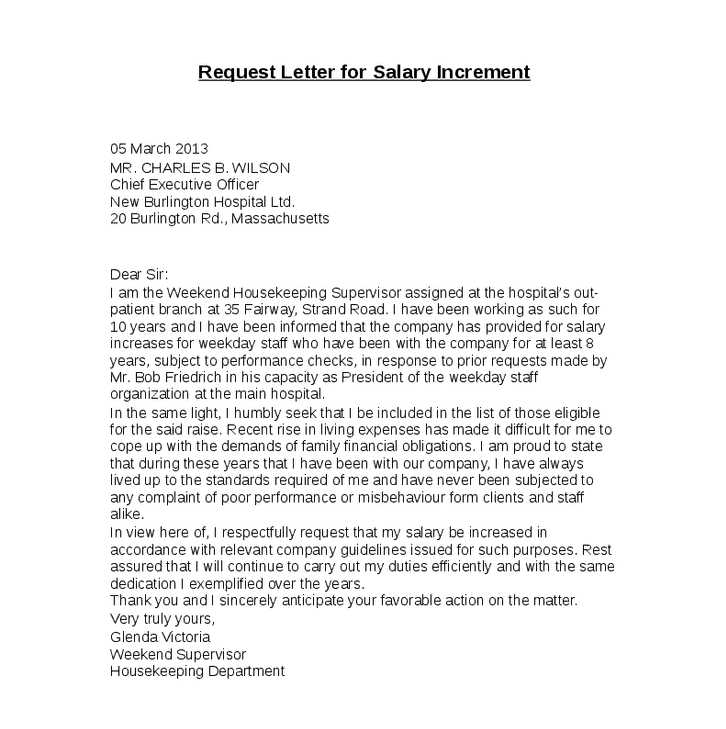
The timing of your appeal plays a critical role in its success. Understanding when to bring up the subject of compensation adjustments can make a significant difference in the outcome. By choosing an appropriate moment, you increase your chances of a positive response and avoid potential setbacks.
When the Company is Performing Well
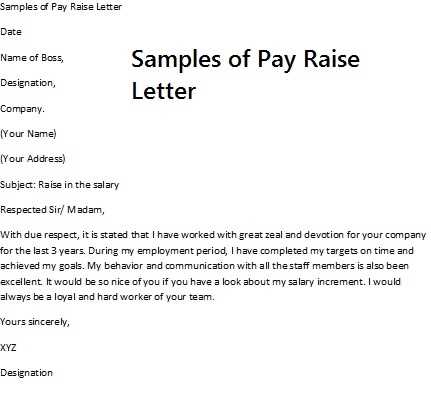
One of the best times to make your case is when the organization is experiencing growth or success. If the company is achieving its financial targets or completing successful projects, it’s an ideal moment to highlight your contributions. Demonstrating how you’ve played a part in the company’s success can strengthen your position.
After Achieving Significant Milestones
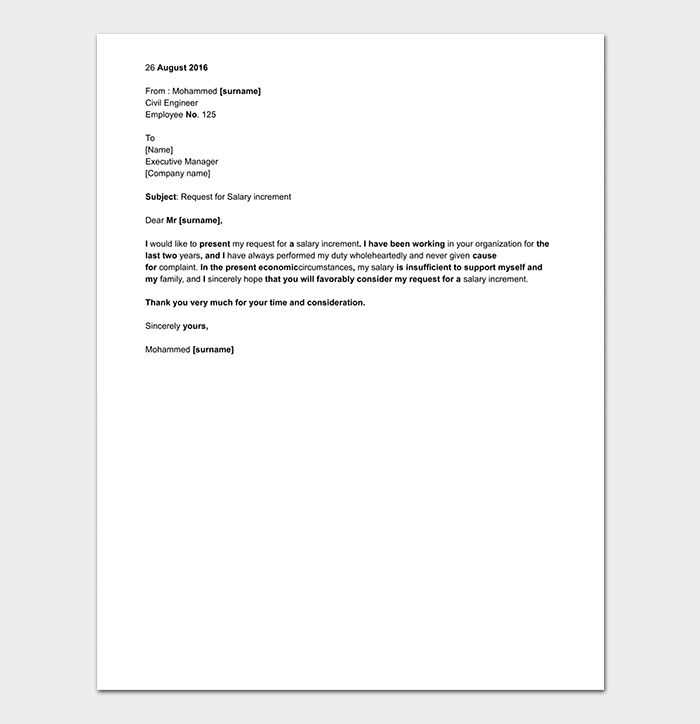
Another great opportunity arises after you’ve completed a major project, received positive feedback, or reached an important career milestone. These moments allow you to showcase your achievements and prove your increasing value to the organization. Timing your request around a recent accomplishment helps provide tangible evidence of your worth.
Consider the Budget Cycle Understanding the company’s financial calendar can also influence the timing of your appeal. It’s wise to bring up compensation changes just after budget planning or during performance review periods when managers are already evaluating employee performance and allocating resources.
What Happens After You Submit Your Letter
After submitting your appeal for a compensation adjustment, it’s natural to wonder what the next steps will be. While every organization handles such requests differently, there are common procedures and timelines that typically follow. Understanding these can help you manage your expectations and prepare for possible outcomes.
Initial Review and Consideration
Once your appeal is submitted, it will likely undergo an initial review by your manager or HR department. During this stage, they will evaluate your request based on your performance, the company’s budget, and other relevant factors. This process can take anywhere from a few days to several weeks, depending on the complexity of the request and the organization’s policies.
Meeting and Discussion
If your request moves forward, you may be invited to meet with your manager or HR representative to discuss it in detail. This meeting provides an opportunity for both sides to express their perspectives. Be prepared to explain your rationale and provide supporting evidence for your appeal. Likewise, the employer may share their position and any potential constraints they are facing.
| Action | Timeline | Possible Outcomes |
|---|---|---|
| Review by Manager/HR | 1-2 weeks | Request is considered, further clarification may be needed |
| Discussion/Meeting | 2-4 weeks | Agreement, counteroffer, or rejection |
| Decision Making | 1-2 weeks after meeting | Approval, negotiation, or delay |
Possible Outcomes: Depending on the review and discussions, you may receive an approval, a counteroffer, or a rejection. If your appeal is accepted, the company will outline the new terms, which could include a salary increase, bonus, or other benefits. If the response is negative, try to seek constructive feedback and understand the factors that contributed to the decision. Keep the lines of communication open for future discussions.